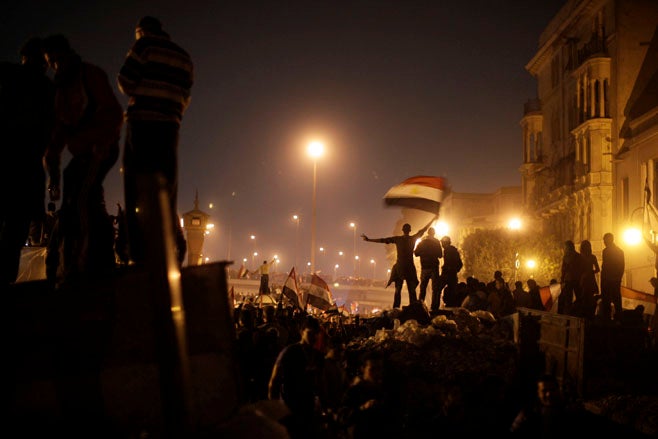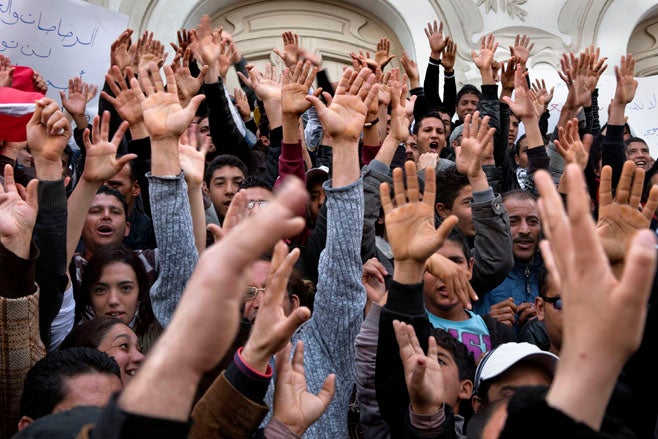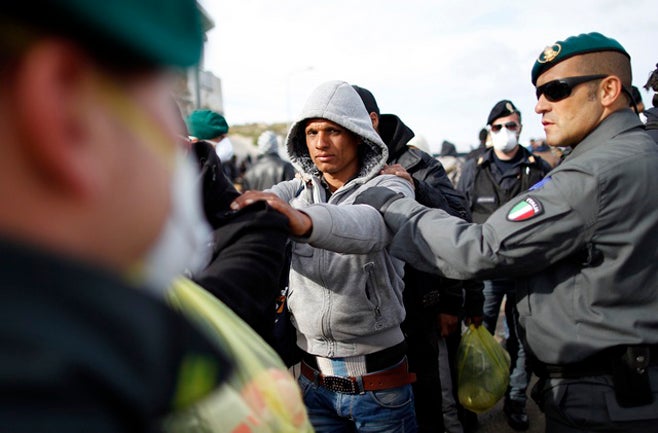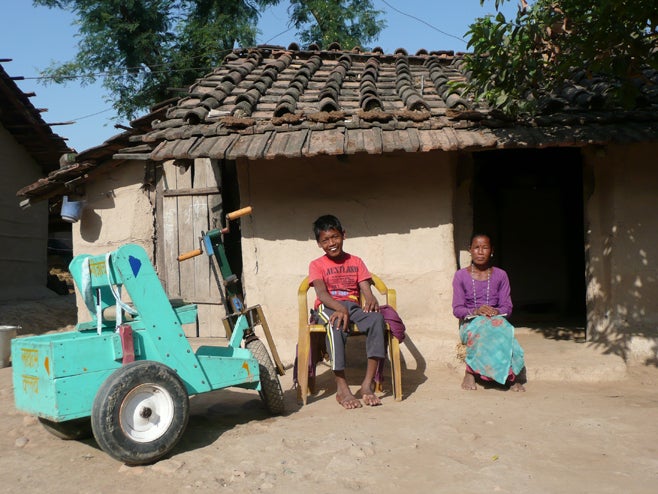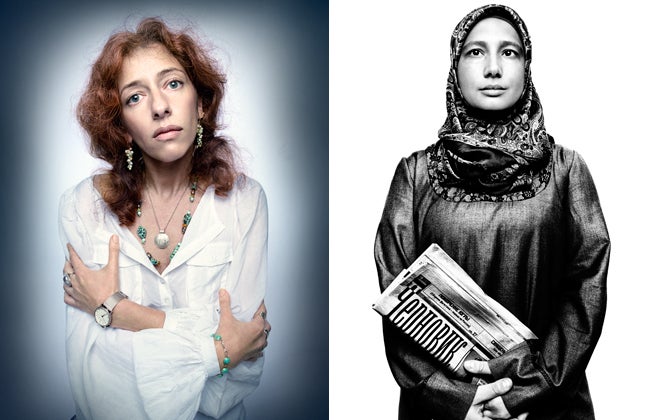Violence increased in Burundi in 2011 as the country’s political situation failed to stabilize. Reciprocal killings by members of the ruling National Council for the Defense of Democracy-Forces for the Defense of Democracy (CNDD-FDD) and the former rebel group the National Liberation Forces (FNL) increased, particularly in Bujumbura, the capital, and in Bujumbura Rural Province. Impunity for these crimes remains one of the most serious obstacles to peace. The single largest incident of killings took place in September in Gatumba, near the Congolese border.
The political space in 2011 continued to narrow, with the CNDD-FDD still in a position of near-monopoly following the main opposition parties’ boycott of the 2010 elections. The government continued to harass and intimidate journalists, lawyers, and civil society actors who exposed abuses, often labeling them opposition supporters.
The creation of a National Independent Human Rights Commission (CNIDH), whose members were sworn in in June, was a positive step, but the CNIDH’s activities in 2011 were poorly funded.
Political Space
The CNDD-FDD continued to dominate political space, sending contradictory messages to the opposition. On the one hand, President Pierre Nkurunziza, during his Independence Day speech on July 1, appealed to exiled opposition leaders to return to Burundi peacefully and help contribute to the construction of the country. On the other, the government and the opposition were unable to agree on the preconditions for dialogue, despite international appeals to do so. The situation was exacerbated by the disarray of the opposition and the lack of official recognition of the opposition coalition, ADC-Ikibiri.
Escalation of Political Violence
After exiting the political process in 2010, some FNL members again took up arms and began launching attacks inside Burundi and from neighboring Democratic Republic of Congo. A number of other unknown armed groups have also emerged. In response, the CNDD-FDD increased attacks on FNL members and former members, notably through its imbonerakure youth wing and the National Intelligence Services (
Killings targeted prominent members of the FNL as well as the rank and file. Demobilized FNL commander Audace Vianney Habonarugira was shot dead in July 2011. He had first been shot and seriously injured by a policeman in March 2011, and he was repeatedly threatened and sought after by state security agents in the months before his death. Dédithe Niyirera, FNL representative in Kayanza province, was killed in Kayanza in late August after receiving numerous death threats. Médard Ndayishimiye, a local FNL leader in Mwaro province who was also threatened, was found dead in Rutana province in October after being abducted in Gitega town where he had fled for his safety. Demobilized FNL combatants were also pressured to join the SNR and the imbonerakure or face death, in an effort to recruit members who can more easily identify current and former FNL members. Many FNL members and former members went into hiding after receiving threats.
In response to these attacks, armed groups, some of whom were believed to be associated with the FNL, increased attacks on CNDD-FDD members and local officials. Among the victims were Pascal Ngendakumana and Albert Ntiranyibagira, two low-ranking CNDD-FDD members, killed on April 6 by individuals believed to be associated with the FNL.
On September 18, gunmen killed around 40 people in an attack on a bar in Gatumba, Bujumbura Rural province. It was the largest massacre in the country in several years. The majority of victims were not known to be affiliated with a particular political party. Nine days later the intelligence services blamed FNL leaders for the attack. However, the findings of the commission of inquiry have not yet been published.
Impunity
Following the Gatumba killings, President Nkurunziza announced that the government would find the perpetrators within one month. A special commission was established to conduct an investigation and submitted its report to the prosecutor general in October. By the end of October, 20 people were in pre-trial detention in connection with the Gatumba attack. Other commissions have been established since late 2010 to investigate extrajudicial killings and other abuses before, during, and since the 2010 elections. At this writing none of these commissions had published their findings.
Almost all political killings by individuals affiliated with the CNDD-FDD or the security forces were conducted with impunity. In some cases, the police or the prosecutor opened investigations, but these rarely led to arrests. When crimes were believed to have been perpetrated by opposition groups, the typical government response was to arbitrarily target FNL or ex-FNL members, even when there was no credible evidence that the individuals punished were responsible for these crimes.
Hearings into the killing of Ernest Manirumva, vice-president of the anti-corruption organization OLUCOME, have stalled since 2010. Eleven suspects remain in preventive detention since 2009 while high-level security force suspects have still not been questioned.
Journalists, Civil Society Activists, and Lawyers
Jean Claude Kavumbagu, a journalist charged with treason following his 2010 article questioning the army’s ability to respond to attacks from al-Shabaab, was released on May 13, 2011. He was found guilty of “publishing an article likely to discredit the state or economy” and sentenced to eight months, but was released shortly after the trial since he had spent 10 months in pre-trial detention.
Bob Rugurika, chief editor of African Public Radio (RPA), was summoned multiple times to the public prosecutor’s office and questioned about RPA’s radio broadcasts. He was accused of disseminating information that “incites the population to civil disobedience” and “incites ethnic hatred” after broadcasting programs that called for dialogue with the opposition. Rugurika also faced questions about programs that touched on the composition of a committee set up by the government to prepare a Truth and Reconciliation Commission. Patrick Mitabaro, editor-in-chief of Radio Isanganiro, was also summoned after his station aired an interview with former spokesperson of the FRODEBU party, Pancrace Cimpaye. He was accused, among other things, of disseminating information that could affect state security. Neither journalist was charged.
The National Security Council issued a one month media blackout on the Gatumba killings, prohibiting journalists from reporting, commenting on, or analyzing the incident and any other case under investigation. Five radio stations and one newspaper briefly defied the order.
Civil society leaders were likewise harassed by the authorities and accused of siding with the opposition. Pierre-Claver Mbonimpa, president of the human rights organization APRODH, and Gabriel Rufyiri, president of OLUCOME, were repeatedly summoned for questioning by the public prosecutor’s office, but were not charged with any offense. In late August President Nkurunziza publicly warned that civil society organizations should be “on guard” in a response to their criticism of state pressure on journalists, lawyers, and civil society activists.
In April the government refused to allow civil society leaders to march in support of justice for Manirumva. When the organizations attempted to march without permission, two members were arrested and detained for several hours before being released.
State authorities also targeted lawyers. On July 15 lawyer Suzanne Bukuru was arrested on espionage charges after facilitating an interview between her clients and journalists. Isidore Rufyikiri, president of the Burundi Bar Association, was arrested on July 27 on charges of “insulting magistrates” after organizing a rally in defence of Bukuru. Bukuru was released on August 1 and the charges were dropped. Rufyikiri was released on August 4 after paying a fine.
François Nyamoya, lawyer and spokesman for the opposition party Movement for Solidarity and Democracy (MSD), was arrested on July 29 on charges of witness tampering in a 2004 murder trial. At this writing he remained in detention. Nyamoya, who is also the lawyer for journalist Rugurika of RPA, had previously been arrested in 2010 on charges of “threatening state security.”
National Independent Human Rights Commission
CNIDH began working in June and issued its first public statement on an alleged extrajudicial execution by the police. However, the commission’s activities in 2011 were poorly funded. Following pressure from the Burundian government and other African governments, the United Nations Human Rights Council (HRC) hastened the termination of the mandate of the UN independent expert on the situation of human rights in Burundi, on the basis that a national human rights commission had been created.
Transitional Justice
After years of delay, measures were put in place relatively quickly to prepare the establishment of a Truth and Reconciliation Commission (TRC) to cover grave crimes in Burundi since 1962. The government appointed a technical committee in July to create a framework for a TRC, and in October the committee submitted its report to the president. At this writing the report had not been officially published. The government has not made a commitment to establish a special tribunal to investigate past war crimes.
Key International Actors
On January 1 the UN Security Council adopted a resolution scaling down the UN Office in Burundi (BNUB). Staffing reduction affected BNUB’s human rights monitoring capacity.
In June the UN independent expert on the situation of human rights in Burundi presented his first report since September 2008. Burundi officials and the African Group at the HRC had repeatedly blocked previous publication attempts. The expert called for measures to end impunity and promote greater respect for freedom of expression.
International diplomats in Bujumbura continued to follow high-profile court proceedings including that of Kavumbagu. In May European diplomats in Burundi, in a joint statement, expressed concern over reports of extrajudicial executions and torture in 2010 and 2011. The UN secretary-general and several governments, including those of the United States and Belgium, condemned the Gatumba attack and called for an investigation. The United Kingdom’s Department for International Development (DFID) announced that it would close its aid programme in Burundi in 2012, citing internal reprioritization. Other international donors expressed concerns over state corruption.
